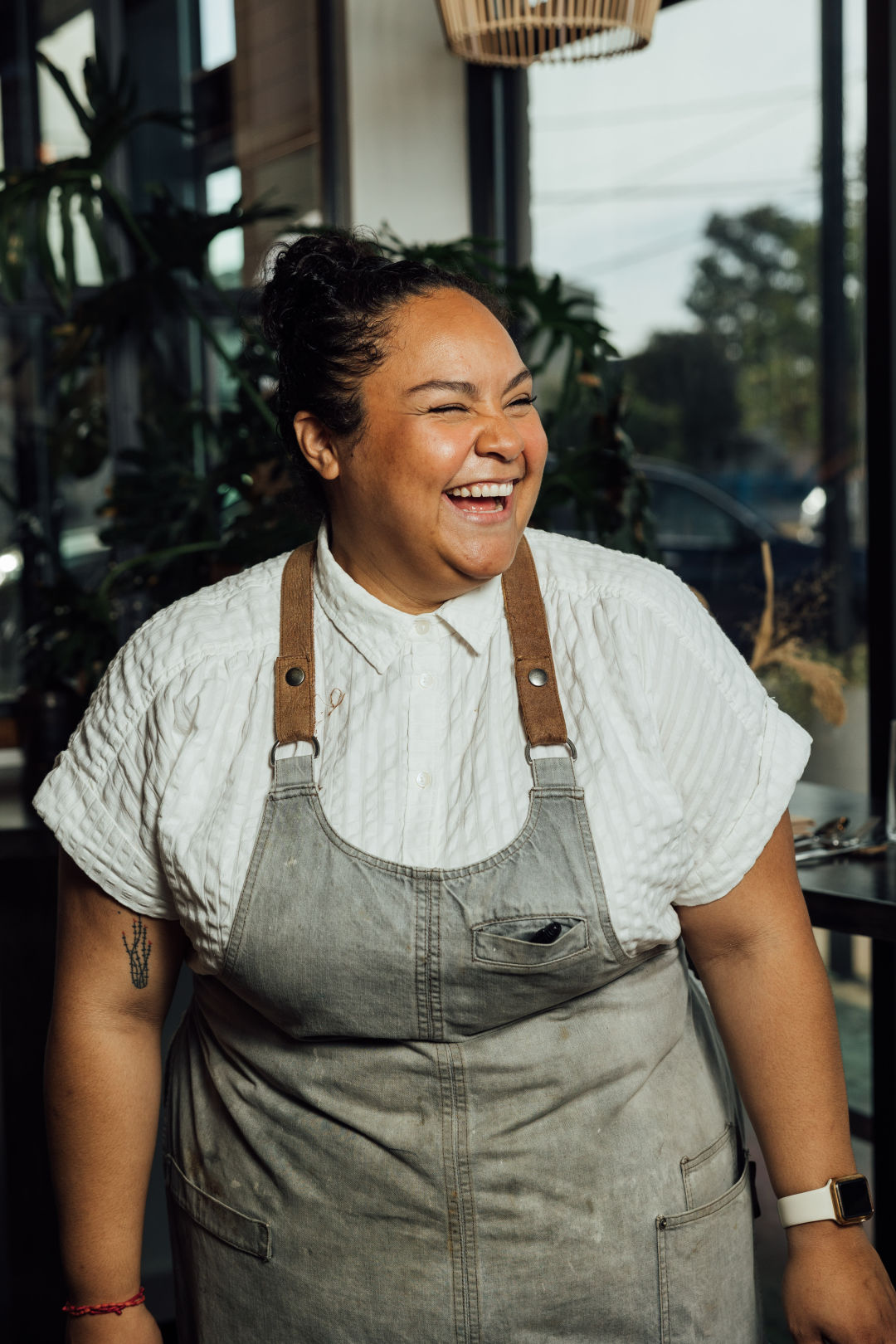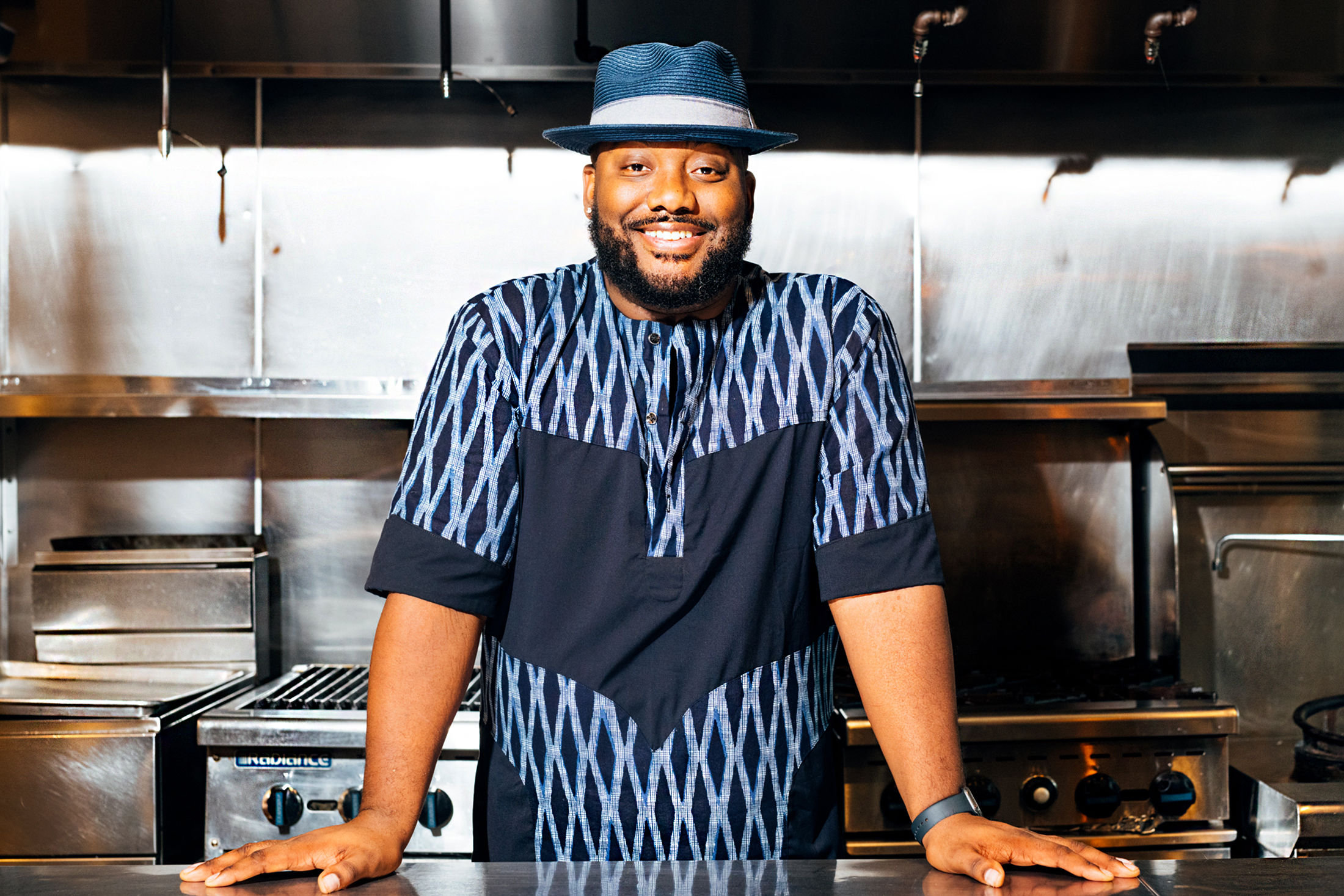Houston Chef Evelyn Garcia Puts a True Piece of Herself into Jūn

Chef Evelyn Garcia always makes Houston proud, from her appearance on Top Chef to her Heights restaurant Jūn.
Image: Courtesy Jūn
In Houston’s multicultural landscape, chef Evelyn Garcia’s culinary journey defines what this city is all about: a celebration of roots. Her wildly successful year-old restaurant, Jūn, manages to be at once uniquely Houstonian and uniquely personal. And it's now a James Beard Award semifinalist for Best New Restaurant.
Born to Mexican and Salvadoran parents in Houston, Garcia’s start in the food industry can be traced back to her time working at her family’s cheese farm in El Salvador and at her parents’ restaurant, Chelyn’s Grill in Spring Branch, during summers in high school. Garcia became nationally famous when she made it to the finals of the Houston-based season 19 of Top Chef in 2022, her talent and charming personality earning her many fans. But she had been hustling for years before the TV show, working in New York City kitchens for a decade before returning home to Houston. Her original concept, Kin, made the farmers market rounds and was also a counter at Politan Row before the Rice Village food hall closed in 2020. During the pandemic, Garcia developed a line of packaged food products as she worked on launching her biggest project yet.
In February 2023, Garcia and her business partner, Henry Lu, opened Jūn in the former Central Co-op space in the Heights. The restaurant’s cuisine is familiar yet hard to define, rooted in the New American canon while introducing a mix of the Southeast Asian, Mexican, and Salvadoran flavors that shaped their childhoods. The name Jūn, pronounced “June,” pays homage to the month Garcia and significant people in both their lives were born, and stands as a testament to the importance of family in the restaurant.
“It’s very important to showcase that,” Garcia says. “The goal is not just getting creative in the kitchen, but a celebration of our heritage and inviting people to experience the comforting and homey flavors of our upbringing—just in a different kind of setting.”

The carrots appetizer at Jun incorporates cheese from Evelyn Garcia's family farm in El Salvador.
Image: Courtesy Jūn
Jūn’s use of Salvadoran cheese from her family farm is proof of this. The micro dairy business has been passed down through generations on her father’s side, operating in the small town of Nueva Esparta in El Salvador. Garcia’s aunt, Cristina García de Ordóñez—known to her and the family as just Tina—is the artisan behind the cheese, which is made from fewer than 20 cows on the property.
“I grew up eating it, you know, so it’s always been at my disposal,” Garcia says. “And now it found its way effortlessly on the menu.”
The cheese, called “queso de terron,” stars in dishes like the popular roasted carrots. On the menu since opening, the appetizer features a handful of charred whole carrots on a bed of the Salvadoran queso, all topped with salsa macha and a couple quail eggs. The cheese is cooked down with heavy cream, resulting in a spreadable element that adds creaminess and depth to the carrot dish. The queso de terron is also incorporated into the pan de arroz, a type of Salvadoran bread made with rice flour commonly eaten with coffee or as a snack, as well as the corn bread. These two treats serve as Jūn’s version of a bread-and-butter plate, served with a smoked black sesame butter.
There are many pieces of herself—and of Lu’s—in the menu at Jūn, encapsulating the ethos of Houston as a multicultural food city. Gulf shrimp are served as an aguachile with taro and avocado, and scallops are smothered in a Viet-Cajun butter. A recent seasonal dish starred cubed Texas persimmons swimming in a corn leche de tigre with hoja santa. The addictively umami michelada is elevated by the addition of fish sauce and hoisin.

Chef Evelyn Garcia puts a lot of herself into her year-old restaurant, Jun.
Image: Courtesy Jūn
Garcia also wishes to use her platform to share lesser-known aspects of Salvadoran food, beyond pupusas. She notes that the cuisine is often overlooked or misunderstood.
“Salvadoran food tends to get bunched up with other cuisines,” Garcia says. “If people know Central America, we get bundled up with Honduras because we use some of the same ingredients, but they’re not the same.”
In addition to Jūn’s dinner and brunch service, Garcia has occasionally cooked up weekend pop-ups at the restaurant, where Houstonians can pick up Salvadoran specialties to go—she makes pupusas, of course, but also tamales and empanadas made in a style specific to the country. She intends to continue introducing these under-the-radar Salvadoran dishes to a broader audience. Her personal favorite, tamales pisques—refried red beans, chicken, and nixtamalized corn wrapped in plantain leaves—will eventually make its way onto the regular menu at Jūn, but with her own twist, potentially with fish instead of chicken.
“I get inspired by different flavor profiles and techniques, so I want to creatively use the basis of how the tamale is made, and then make my own version of it,” she says. “At the end of the day, we’re trying to create all these new memories, but with stuff we grew up eating.”
As Jūn continues to grow and collect accolades, Garcia remains committed to her vision. The restaurant is a personal and unique expression of her culinary journey, a space where her family’s heritage shines through, one dish at a time, bridging the gap between traditional flavors and a contemporary, multicultural dining experience.




